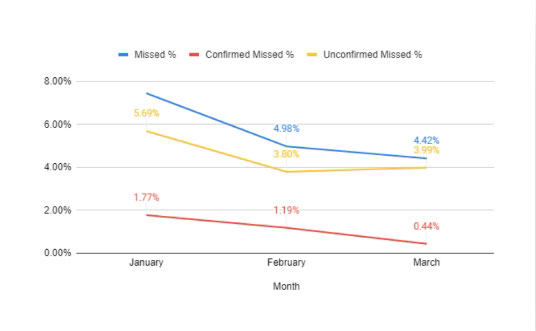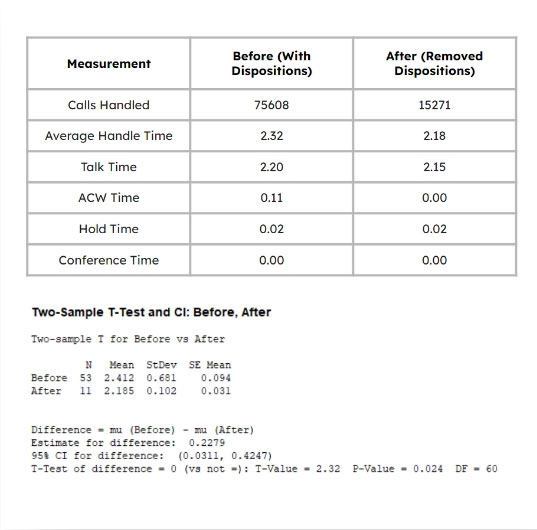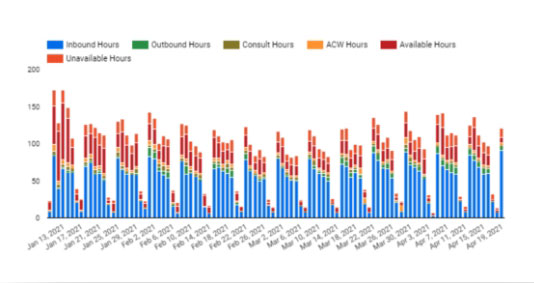Proof You Can Trust
It’s apparent that at its core, CommLogic
is an innovative, data-driven, client-
oriented company...
…that is not just great at problem solving, but also at listening to the needs of its customers. CommLogic doesn’t just support its clients, but it’s clients’ customers extraordinarily well. And that makes my company better.
COO of retail clothing industry
Thanks to CommLogic, we were able to
quickly and efficiently push our customer
service to the highest level yet.
that our support vendors are ready to go the extra mile to meet our needs – and CommLogic does just that. They are great at analyzing our processes and unearthing improvements at every stage. Our customers noticed the difference, and the credit goes to CommLogic.
Founder , Online Nutritional Supplements Retailer
Case Studies
Discover How We’ve Helped Businesses Like Yours Improve Customer Experience,
Increase Appointments & Save Money
Automated Reminder workflows
Scenario
Client V manages at-home appointment setting. Based on data analyzed from client systems, a significant number of scheduled appointments were not completed - and 95% of the time the reasons was customer-related (e.g.forgot, cannot contact the customer, etc). Missed appointments represent significant monthly loss for our client factoring in costs for labor, equipment, support, etc.
Action
We analyzed the reasons for the missed appointments and implemented an automated multi-channel reminder workflow that targets each donor based on their communication preferences. The series of reminders (including emails, text, robocalls, operator outbound) was designed to gain confirmation or reschedule if a conflict developed with previously scheduled appointment.
Result
We achieved an 80% reduction in missed appointments due to the automated reminder workflows, creating substantial cost savings for our client.

Serviceable Call Validation
Scenario
Client M has historically paid for inbound call center services based on the number of inbound calls received. Analyzing available CRM and telephony data, we discovered that more than 17% of their calls are coming from unserviceable areas, unresponsive, and mis-dial callers. These calls added unnecessary costs for the client and contributed to longer wait times for legitimate customers.
Action
We compiled all ZIP Codes for the serviceable areas and implemented a ZIP Code validation step to ensure the client now receives only serviceable calls. This allowed us to focus on calls from customers with income potential while reducing wait times and minimizing unnecessary costs.
Result
We reduced unserviceable calls from 17.38% to 2.71% translating to an annual cost savings of more than $100k.

Issue Type Automation
Scenario
Client N has historically required operators to tag issue types after each call to collect business intelligence. Analyzing available data, we discovered that this manual process has added 6 to 8 seconds to each call. While this time may look insignificant, it adds up over time at scale.
Action
We analyzed specific points in the automated call system to determine the issue type based on the selections made. This allowed us to eliminate the manual tagging required from operators while retaining issue tracking capabilities.
Result
We achieved a statistically significant reduction in Average Handle Time of 14 seconds per call providing an additional 9% capacity for current operators.

Schedule Optimization
Scenario
Client R currently staffs call center operators based on utilization assumptions formed several years ago. Actual utilization of operator resources has changed significantly as the business has grown leading to time periods of excess staffing.
Action
We analyzed client data to determine periods where we have a significant excess in available hours, which equates to over staffing. Through improved workforce planning we were able to optimize the schedules to ensure that we have the correct number of people scheduled per shift and scheduling offline activities such as training during intervals with less call activity.
Result
We reduced the ‘Available’ time from 29% in January to 13%. This allowed our client to eliminate more than 600 payroll hours/month while maintaining high customer service standards and developmental activities for staff.

Efficient Transition of Service
Scenario
Client R is a legend in the retail clothing store industry that learned their trusted, long-term call center provider was going out of business within a few weeks. Looking to move quickly, Client R reached out to its marketing and business analytics vendor that referred them to CommLogic.
Action
Understanding the urgency of the situation, we accelerated our Client Discovery Process (CDP) and focused on providing a smooth transition. We worked alongside the existing provider to understand and analyze their procedures and methodologies and retain as much staff as possible. By working with both the existing provider and the client, we laid the groundwork for a smooth and orderly transition.
But that’s not all. The CDP revealed operational inefficiencies and the client charged us with tackling new challenges including: The replacement of an aging CRM, evaluation of current market health, identification of new growth markets, and proactive communications with existing customers.
Result
We reduced the ‘Available’ time from 29% in January to 13%. This allowed our client to eliminate more than 600 payroll hours/month while maintaining high customer service standards and developmental activities for staff.
First-time Customer Communication Outsourcing
Scenario
Client P is a nutritional supplements online retailer. They were looking for a partner who could provide quick turnaround on email and phone customer support service. They managed this activity internally, were experiencing recent growth and were looking to outsource to a reliable partner who could reduce their internal workload. Additionally, they were experiencing a significant backlog in inquiries which was creating a less than optimal customer experience.
Action
We implemented a trial project to fully understand the scope of work. During this phase, we were able to address the immediate need of clearing the backlog while determining the right approach to scale up the service. Once the approach was determined with the client, we efficiently trained and staffed the team to manage the ongoing requirements.
Result
Our team was able to reduce the backlog of emails by 79% within 30 days. We extended customer service operator capacity during peak business hours, accommodate more inbound calls and conduct outbound call backs to existing customers. This activity resulted in an 18% activity volume increase and 6% higher confirmed contacts with outbound calling.



